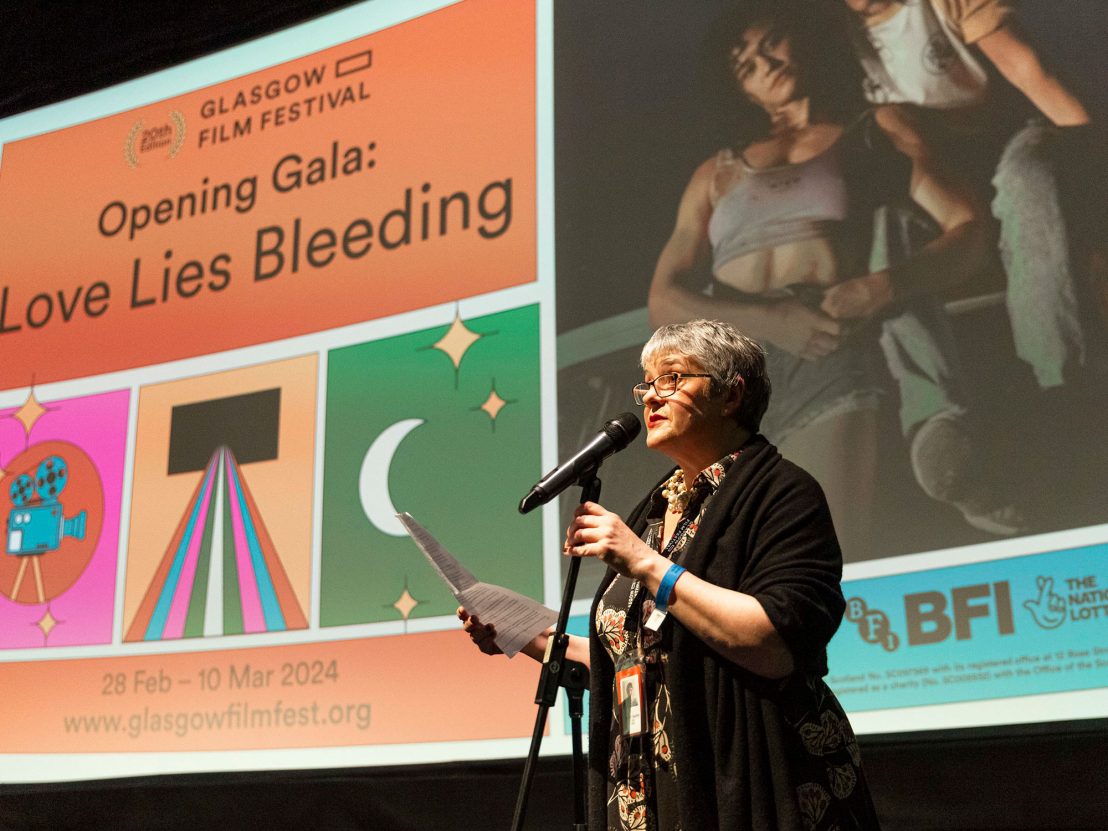
One of the most down to earth festivals in the calendar combines world-class programming with a community of ardent cinema lovers – and a helping of movie-themed karaoke.
“Sundance, Berlin, Glasgow!” – so is the trio of international film capitals proposed by festival director Allison Gardner at the launch of this year’s Glasgow Film Festival. It’s a knowingly irreverent suggestion, but it’s undeniable that GFF – now in its 20th year – consistently punches above its weight in the UK film calendar, arguably leading the pack of Scottish festivals ahead of its starry Edinburgh equivalent.
This year’s biggest coup is the opening gala, the Kristen Stewart-starring Love Lies Bleeding, which kicks off ten packed festival days. Receiving its UK premiere at GFF after screenings at – you guessed it! – Sundance and Berlin, the highly anticipated queer revenge thriller is lapped up by the lively Glasgow audience. In the subsequent Q&A, director Rose Glass (Saint Maud) offers anecdotes about Stewart calling her character the c-word, and Ed Harris – who plays her villainous father – supplying his own wig.
The festival’s central hub of activity is the Glasgow Film Theatre, the city’s iconic art deco cinema, which also celebrates its 50th birthday in 2024. Each day of the festival kicks off with a free screening on the cinema’s biggest screen, where caffeinated early-risers are rewarded with a gratis viewing of a classic from Mr Smith Goes to Washington to Foxy Brown. As I write this, I’m currently rallying a gang of fellow freelancing millennials to accompany me to Thursday’s 10am showing of Rian Johnson’s Brick – released in 2004, the year of the first GFF – which remains one of the most underrated teen weirdo films of the last few decades.
Aside from an arbitrary award given to visiting star Viggo Mortenson, GFF is admirably egalitarian; an audience-focused festival where punters, critics, staff, filmmakers and industry workers feel like one and the same. Aside from a couple of special events, all the screenings, talks and parties take place along the same strip in the city centre, meaning there’s both a genuine IRL buzz and a less frantic atmosphere than at festivals spread out across big cities. I spot a filmmaker and a few fellow critics at Saturday night’s movie karaoke, where guests take turns to belt out classic needle drops. The highlight? “Sweet Transvestite” from Rocky Horror. If you were there, I was the girl doing Seal’s “Kiss From a Rose”.
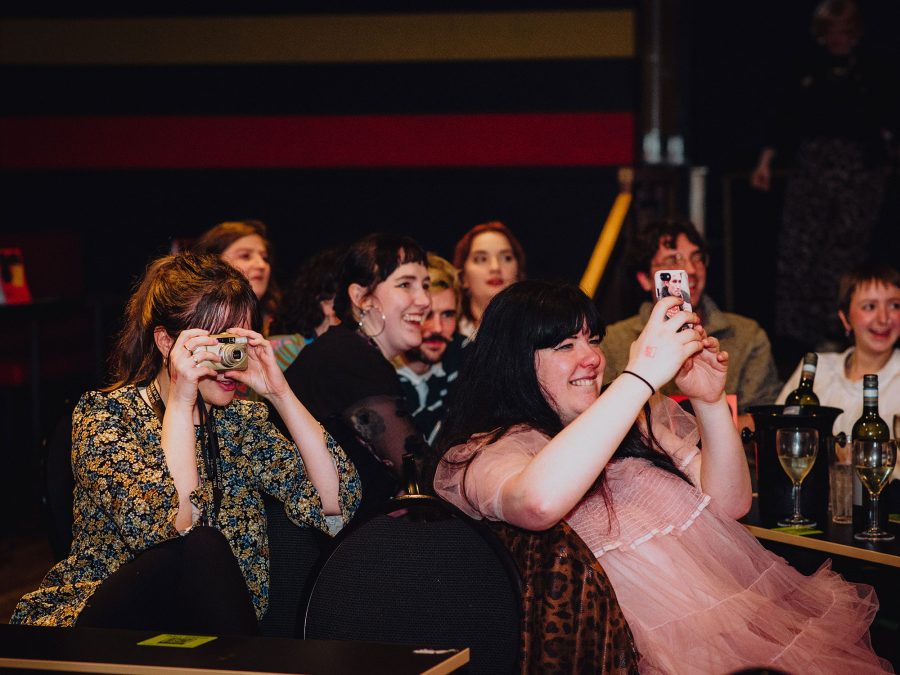
It’s perhaps the festival’s down-to-earth atmosphere that convinces Mortenson to stick around an extra day for a surprise Q&A at the second screening of his Western The Dead Don’t Hurt, to the delight of those who missed out on tickets for its UK premiere the night before. The relaxed vibe also results in a fantastic unabashed Q&A from Maxine Peake – here to support her strong performance in Alan Friel’s middling dystopian thriller Woken – who declares that “I’m no method actor…I mean, I’m not an arsehole”. Other guests spotted in the hallways of the GFT are Ben Wheatley, here to introduce a 15th-anniversary screening of Down Terrace, and local Oscar-winner Kevin Macdonald, representing his own High & Low: John Galliano, as well as Made in England, a documentary about his grandfather Emeric Pressburger’s collaborative relationship with Michael Powell, narrated by none other than Martin Scorsese.
The audience demand for a wide range of films also speaks to the festival’s egalitarian spirit. Big hitters like the charming Billy Connolly documentary Big Banana Feet and Bertrand Bonello’s sci-fi romance The Beast are quick to sell out, but so are trickier prospects like Nuri Bilge Ceylan’s epic About Dry Grasses. Radu Jude’s Do Not Expect Too Much from the End of the World plays to a packed-out Friday night crowd, but fails to impress me despite its accumulating buzz – I think Jude would be pleased to know that it seems to be the most debated film of the festival. Aptly for a city hosting weekly protests against the genocide in Gaza, the longest queue I see is for the complex, West Bank-set drama The Teacher, shot by British-Palestinian filmmaker Farah Nabulsi entirely on location in the occupied territories. Even through the lens of fiction, it’s heartbreaking to be confronted with images that could no longer feasibly be made following the current destruction.
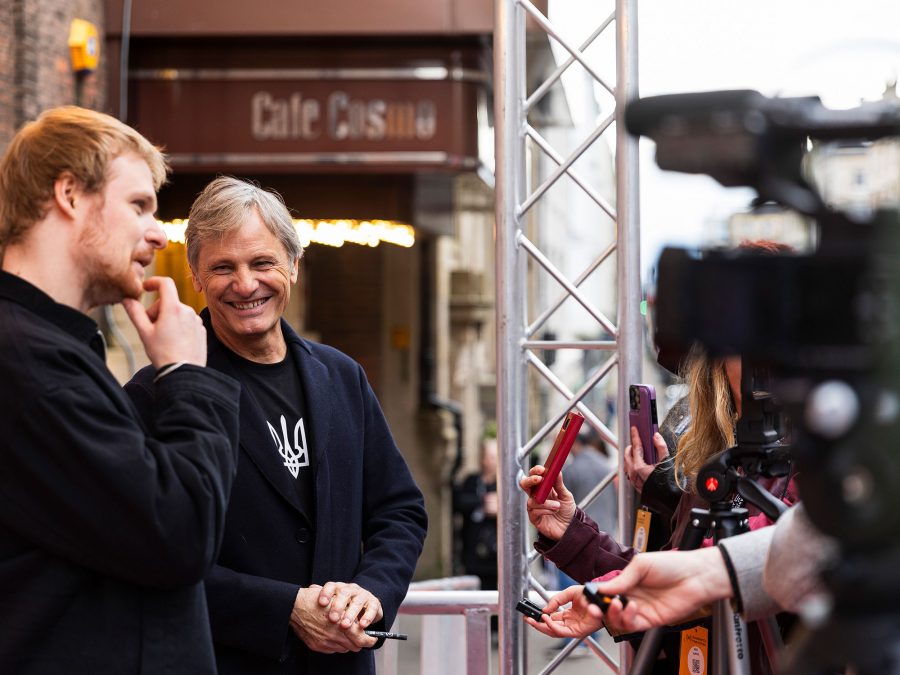
Although I thought it was my most niche pick, it proves impossible to score a friend an extra ticket for We Have Never Been Modern, Matej Chlupacek’s period drama with themes of prejudice against intersex people. Part of GFF’s strand of Czech cinema, the film is part detective story, part examination of societal attitudes in pre-war Europe, with a spellbinding central performance from Eliška Křenková. The film’s design is especially notable; cultivating sinister irony from the juxtaposition of chocolate box landscapes with mysteriously colour-coded costuming.
Stylistic big swings are also abundant in The Vourdalak, a notably folkloric vampire story by Adrien Beau, who has previously worked as a fashion and theatre designer. Kacey Mottet Klein plays a hapless French aristocrat who happens upon a creepy family, just as their supernatural secret reveals itself. The always fantastic Ariane Labed is the MVP, turning in a deliciously strange, deftly physical performance as the family’s spinster daughter. The film also features perhaps the most disarming puppet performance since Baby Annette, and teases out its central battle of patriarchal violence vs non-conformity through both its fable-esque story and its striking costume design.
Thanks to a handful of small but thoughtfully put-together strands, GFF’s repertory programming is also strong this year, and is largely led by up-and-coming Scottish curators. The feminist collective Invisible Women present a Dolores del Río retrospective, and Rosie Beattie’s What Will The Men Wear? series highlights the gender-subverting style of Greta Garbo, Marlene Dietrich and Katharine Hepburn. My favourite screening of GFF so far comes courtesy of Love is Sweet, Oh!, a strand of films about Black people and people of colour experiencing love, curated by Tomiwa Folorunso.
Alongside well-known titles Bend It Like Beckham and Happy Together, Folorunso screens ‘90s Chicago-set Black rom-com Love Jones, starring Nia Long and Larenz Tate – a rarely-screened gem which has the most heartfelt audience reception I’ve experienced all festival. It’s off-the-beaten-track treats like this, alongside the more headline-grabbing films, that make GFF what it is: a warm, welcoming festival that doesn’t compromise on intelligent, thoughtful programming.
Published 6 Mar 2024

By Anton Bitel
We survey the most exciting titles screening at Glasgow’s premiere annual celebration of film.
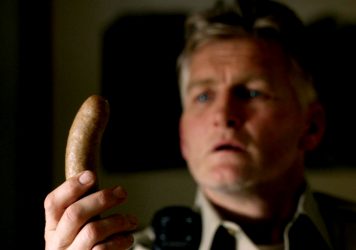
A career-best Simon Pegg and a Sudanese teen movie we’re also on the menu at this year’s GFF.
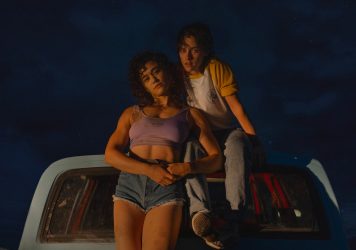
A drifting bodybuilder and a reclusive gym employee fall hard for each other with devastating consequences in Rose Glass's explosive thriller.